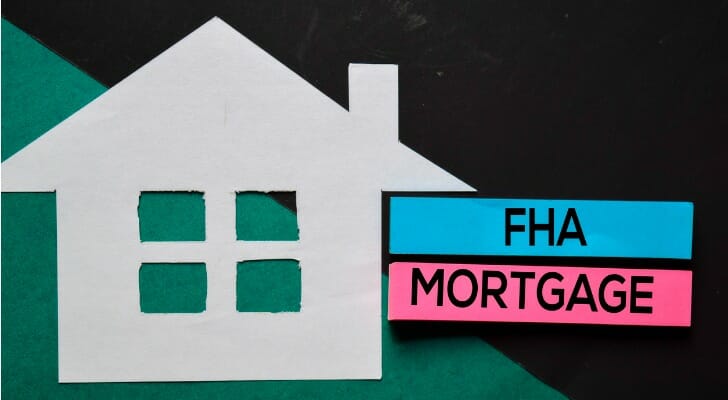 There are many different types of mortgage loans to consider when buying a home. One option is an FHA loan; for those who qualify, these government-insured mortgages can offer competitive terms and rates that make homeownership possible for more buyers. Let’s take a look at what FHA loans are, how they differ from conventional mortgage loans and what to keep in mind if you’re considering an FHA loan for your next home. Meantime, consider working with a financial advisor as you prepare for a home purchse.
There are many different types of mortgage loans to consider when buying a home. One option is an FHA loan; for those who qualify, these government-insured mortgages can offer competitive terms and rates that make homeownership possible for more buyers. Let’s take a look at what FHA loans are, how they differ from conventional mortgage loans and what to keep in mind if you’re considering an FHA loan for your next home. Meantime, consider working with a financial advisor as you prepare for a home purchse.
What Is an FHA Loan?
FHA loans are government-backed mortgages offered by the Federal Housing Administration (FHA), which is a subset of the U.S. Department of Housing and Urban Development (HUD). Though these mortgages are offered through private lenders and banks, the FHA insures the loans.
That doesn’t mean that the government actually provides any funding toward these mortgages, though. Instead, it guarantees them on the borrower’s behalf, making FHA loans a less risky financial product for the lender to approve and disburse.
Because of this, lenders are able to offer better loan terms and less stringent requirements for borrowers. For example, a down payment of just 3.5% is allowed with an FHA loan, and borrowers only need a minimum credit score of 500 to qualify.
This makes it easier for more people to buy a home, especially if they do not qualify for a conventional mortgage loan product. FHA loans are offered on single- and multi-family homes (up to four units), as well as manufactured and mobile homes.
Types of FHA Loans
There are four types of FHA loans to choose from, depending on what the borrower qualifies for and which purpose the loan is meant to serve.
- Fixed-rate FHA: This loan offers a fixed interest rate for a specific loan term. Borrowers will have a set monthly payment and rate for the duration of their mortgage loan repayment.
- Adjustable-rate FHA: The adjustable-rate mortgage, also called an ARM, includes a rate that is subject to change over time. It generally has a fixed rate for a specific period of time (such as the first few years), which can then decrease or increase. As a result, monthly payment requirements can also fluctuate.
- Reverse mortgage (Home Equity Conversion Mortgage): This reverse mortgage loan is offered to borrowers 62 and up. It uses the equity in your primary home to provide monthly payments or a line of credit, which is repaid when the home is sold or the borrower passes away.
- Graduated Payment Mortgage: With a graduated payment mortgage (GPM), also known as a growing equity mortgage, borrowers who expect their income to increase over time can take out a single-family home mortgage with a graduated monthly payment. There are five plans to choose from, each of which gradually increases the monthly payment amount on an annual basis.
FHA Loan Requirements

In order to take out an FHA loan, the property will need to be the borrower’s primary residence. An FHA appraisal and inspection are required on the property, which will help to identify any issues as well as establish the home’s market value. Borrowers should also expect to pay mortgage insurance premiums (similar to PMI) on the loan, regardless of the down payment amount.
Borrower requirements for an FHA mortgage loan depend on the type of FHA loan being taken out, as well as certain personal factors.
In general, though, borrowers must have:
- A debt-to-income (DTI) ratio below 43%
- Proof of employment and a steady income source
- A FICO credit score of at least 500
For borrowers with a down payment of 10% or more, a FICO credit score of 500 or higher is required. However, if a borrower wants to put down as little as 3.5% (the minimum allowed), a credit score of at least 580 is required.
FHA Loans vs Conventional Mortgage Loans
There are a few important differences to note between FHA loans and conventional home mortgage loans.
Differences Between FHA Loans and Conventional Home Mortgages
| Characteristic | Conventional Mortgage | FHA Mortgage |
| Down payment required | Varies by lender; 20% is common, may be as low as 5% | 3.5% minimum |
| Credit score required | Varies (minimum of 620 to 720, on average) | 500 for down payment of 10%+; 580 for down payment as low as 3.5% |
| Debt-to-income ratio (DTI) | Typically less than 36% | Less than 43% |
| Mortgage insurance (PMI) | PMI required only if down payment/equity is <20% | Mortgage insurance premiums always required |
| Government insured? | No | Yes |
FHA loans can put homeownership within reach for more borrowers, especially those who wouldn’t otherwise qualify for competitive, conventional home loans. However, due to PMI requirements these mortgages often involve more fees than conventional loans, so borrowers should evaluate their options thoroughly.
The Bottom Line

An FHA home mortgage loan is a government-insured product that can make homeownership possible for more borrowers. It has lower credit score and down payment requirements than many conventional loans, which allows lenders to offer home mortgages to riskier applicants. This can mean both better approval odds and lower interest rates for more borrowers. FHA loans may also offer lower closing costs to those borrowers than conventional mortgage loans would. If you are unable to get a competitive mortgage loan — either due to your credit score or down payment — consider whether an FHA loan might be the right answer for your next home.
Tips for Home Buying
- Not sure whether an FHA loan is the right choice for you and your family? Consider speaking with a local financial advisor. Finding a qualified financial advisor doesn’t have to be hard. SmartAsset’s free tool matches you with up to three financial advisors in your area, and you can interview your advisor matches at no cost to decide which one is right for you. If you’re ready to find an advisor who can help you achieve your financial goals, get started now.
- Use SmartAsset’s free mortgage calculator to get a good estimate of how much house you can afford.
Photo credit: ©iStock.com/PC Photography, ©iStock.com/Credit:Edwin Tan, ©iStock.com/syahrir maulana